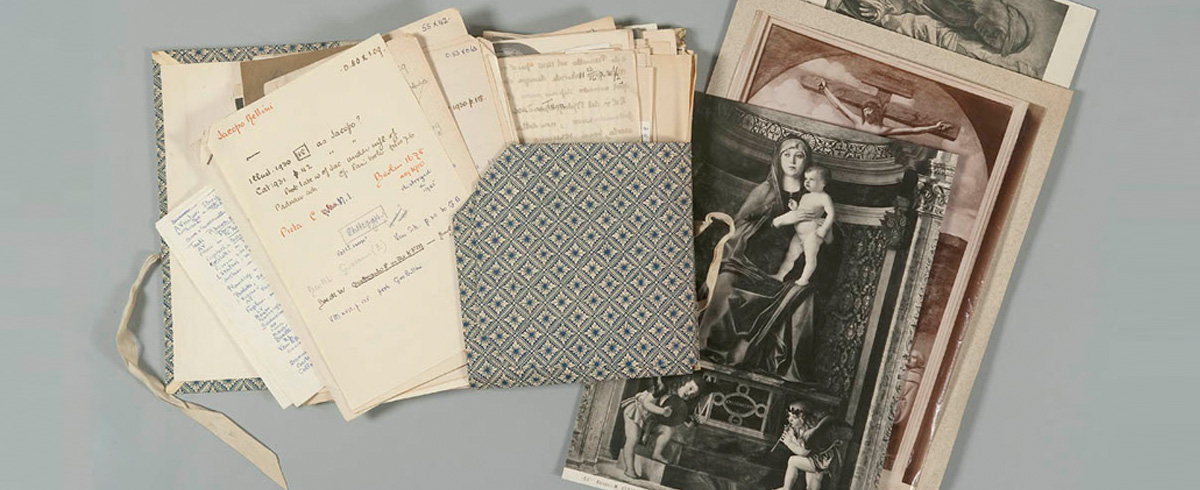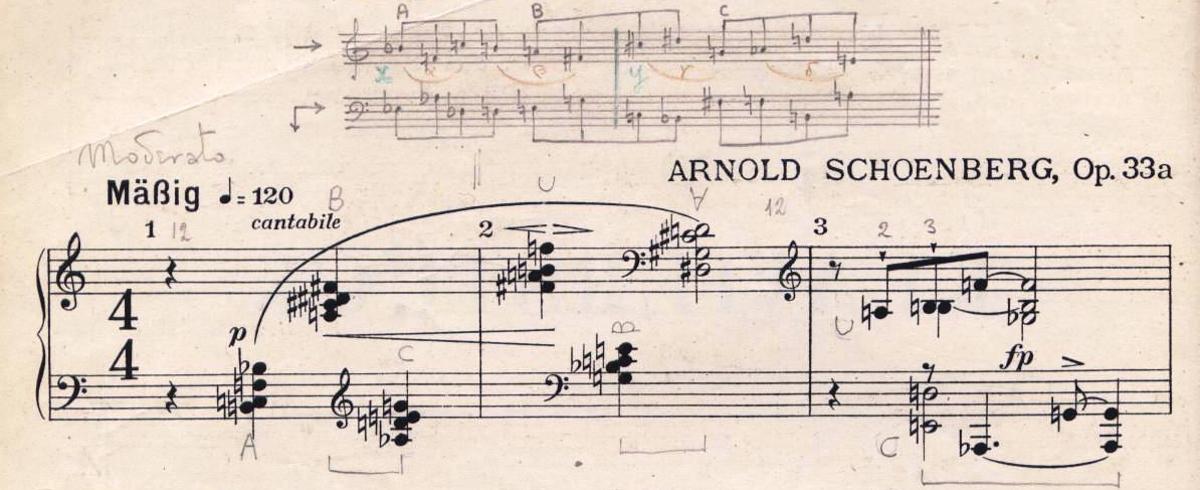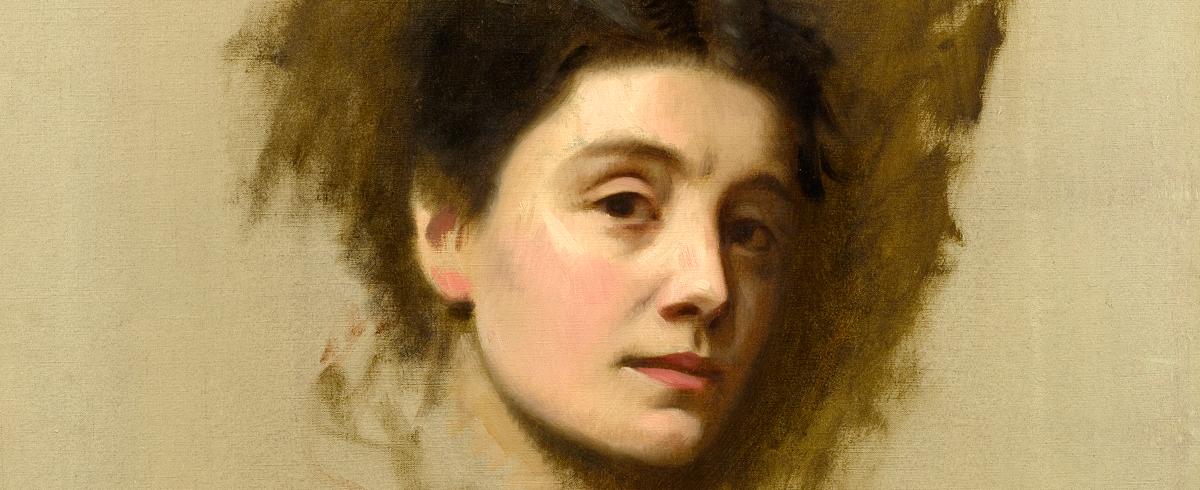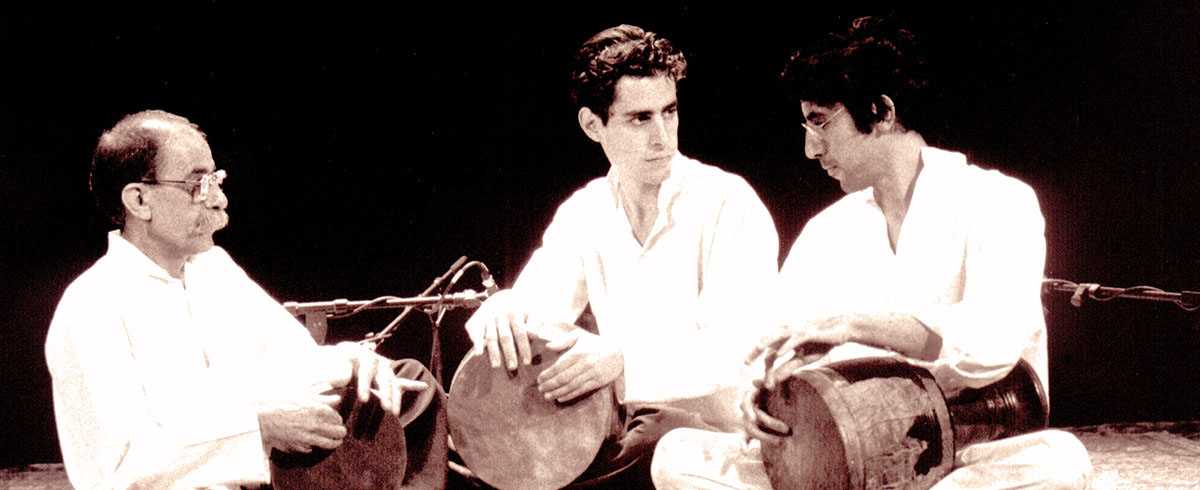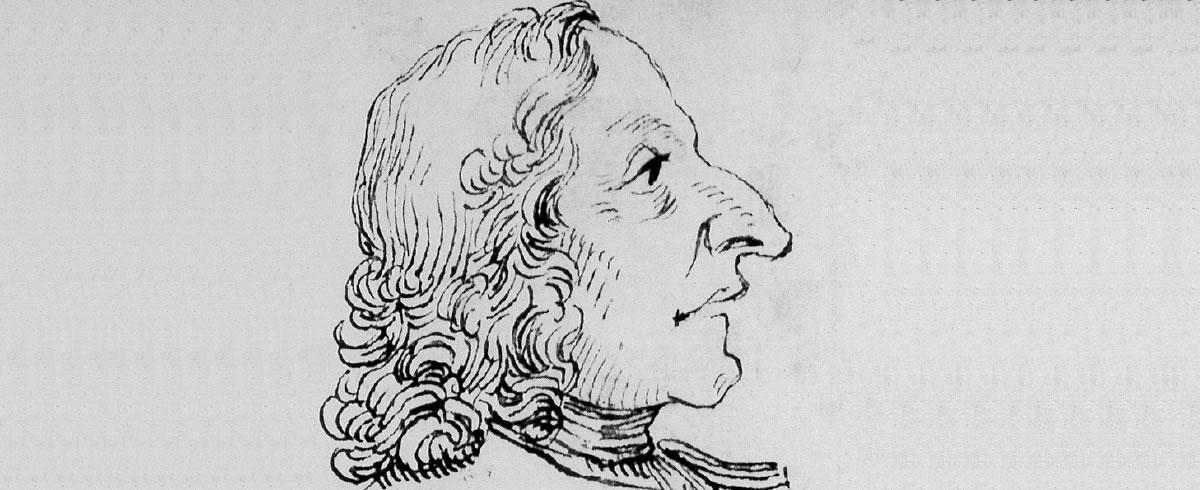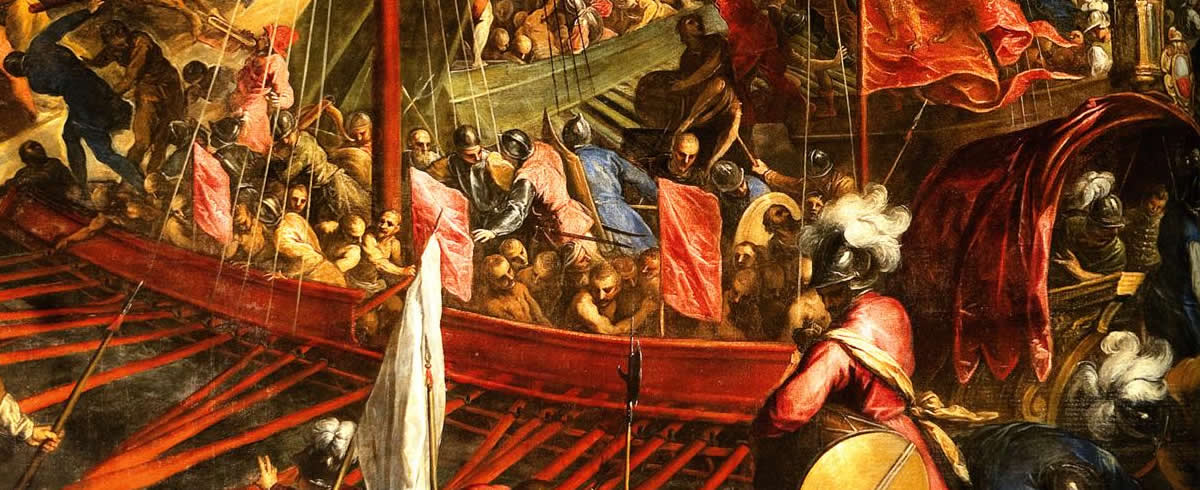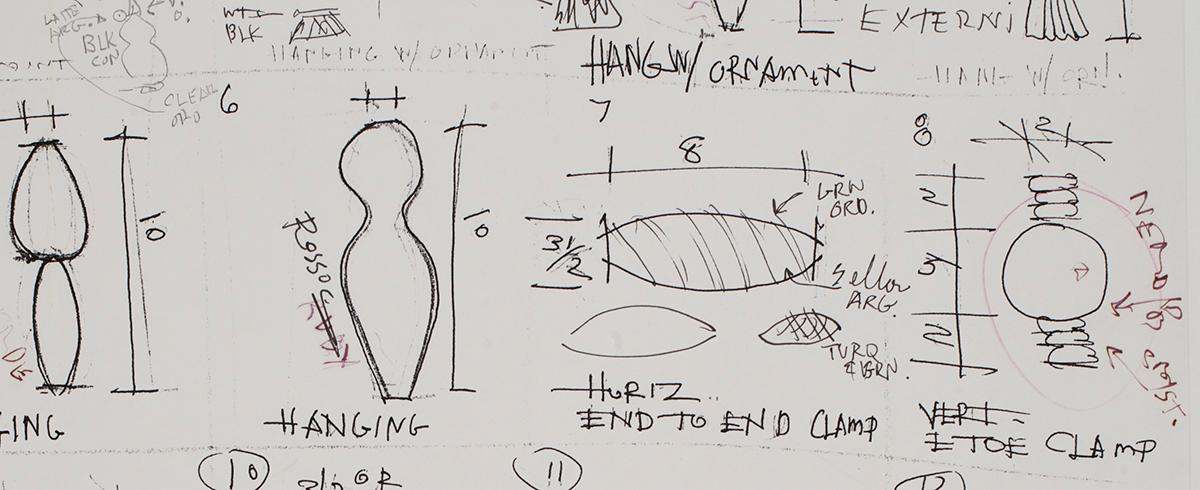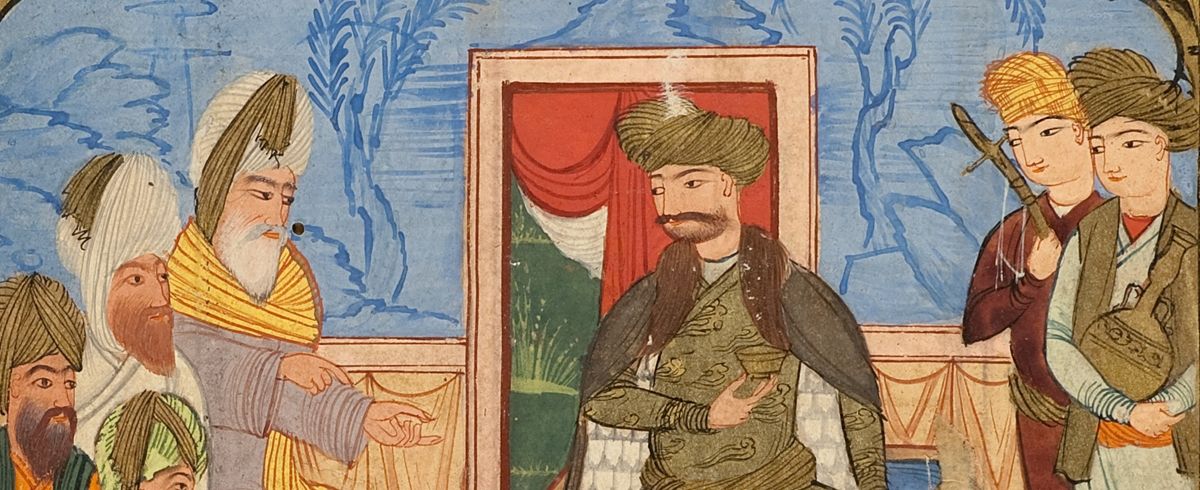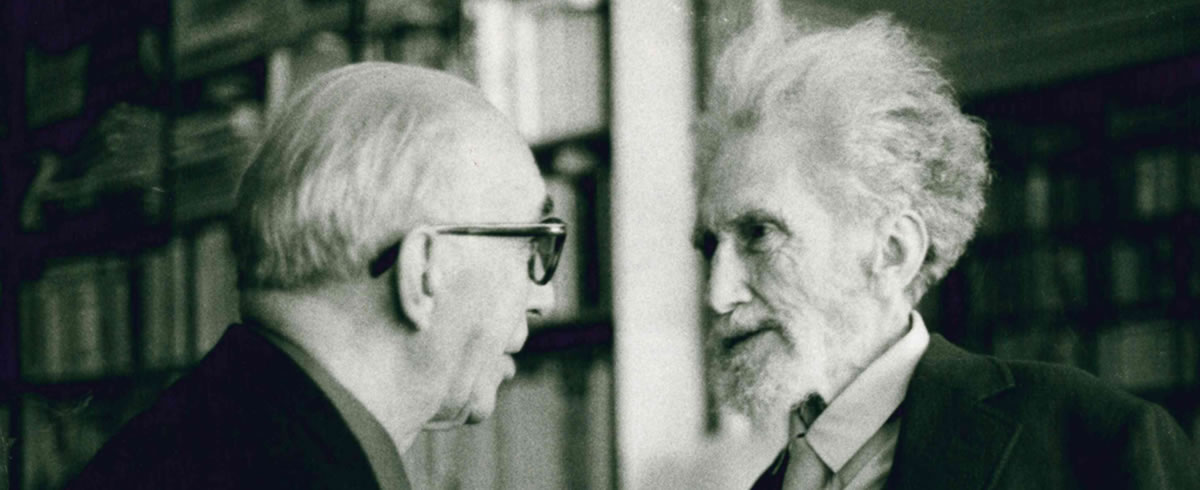Since its inception, the Fondazione Giorgio Cini has accompanied its research and promotion of Italian and Venetian culture with conservation of the archive wealth it holds. This is a documentary treasure of inestimable cultural value containing more than ninety collections with more than five million documents, photographs and books.
Suitably appreciating such material means on one hand making it fully accessible to the community of scholars and enthusiasts, on the other to ensuring its perfect conservation and durability. The use of the most advanced information technology is a fundamental aid in this task and the Foundation has for years been digitalising its archives. This is why in 2014 a systematic computerisation campaign was begun with the aim of digitalising and making an inventory of the Foundation's collections and archives, carried out by creating the OPAC as a tool for the community.
The solution identified for this purpose led to the construction of a DIGITAL ARCHIVE based on xDams, a documentary platform dedicated to the analytical filing, description and management of different types of material and information, digital attachments, images (tiff, jpeg), audio-visuals, pdf files and so on. The xDams software is capable of using the data and metadata referred to it according to national and international standards and can be interfaced with other systems.
There is also a plan to set up a laboratory for computerisation, a point of reference for the acquisition of materials according to consolidated guidelines on the standards of the sector.
Institute of Art History
The Istituto di Storia dell'Arte holds a considerable number of documentary and photographic archives linked, in particular, to important figures in the history of art, such as Giuseppe Fiocco and Rodolfo Pallucchini, directors of the institute from 1954 to 1971 and from 1972 to 1989, who entrusted the Foundation with the task of conserving their own materials.
Institute of Music
The Istituto per la Musica holds collections of composers and figures of the Italian musical world active between the end of the nineteenth century and the beginning of the twenty-first. The plurality of languages and techniques with which they expressed themselves (from late-Romantic symphonic style to serialism, from Neo-classicism to theatre and audio-visual experimentation) and their different fields of interest are documented by handwritten and printed materials: notes, outlines, sketches, drafts and scores relating to instrumental, vocal and electronic music for dance, theatre, cinema, radio and television.
Study Centre Theatre and Drama
The Istituto per il Teatro e il Melodramma promotes the scientific research and promotion of the show in specific spheres such as the history of the actor, of melodrama, of dance, of set design and of theatre and music iconography. In recent years the Institute has added some successful creative efforts to its conservation vocation, organising theatre shows with important artists and obtaining considerable public success.
Comparative Music Studies
The Fondazione Giorgio Cini's Istituto Interculturale di Studi Musicali Comparati (IISMC), founded by Alain Daniélou in 1969, has promoted courses, seminars, conferences and shows on the different music of the world and an intercultural approach to music studies since its inception.
Italian Institute Antonio Vivaldi
The Istituto Italiano Antonio Vivaldi, founded by Antonio Fanna in 1947 and made part of the Fondazione Giorgio Cini in 1978, conserves, in copy, all the music - period manuscripts and prints - composed by Antonio Vivaldi, and modern editions of these, monographic essays and extensive audio and video documentation available to scholars for consultation.
Institute of Venice History
The Istituto per la Storia della Società e dello Stato Veneziano was founded in 1955 to promote the most discerning and cognizant study of the Venetian state and society in its various aspects. An arc of time was thus taken into consideration from the dawn of a still embryonic Venice in the Byzantine sphere through to the full sovereignty of a ruling city and on to the dissolution, in 1797, of the Most Serene Republic.
Glass Study Center
The Archive of the Centro Studi del Vetro, founded in 2012 as part of the Fondazione Giorgio Cini's Istituto di Storia dell'Arte, is a wealth drawn from the historic archive and art collections of Venetian Murano glassworks and consists mainly of drawings, designs, papers, documentation, production catalogues, press releases and period photographic reproductions.
Comparative Studies of Cultures and Spiritualities
The Centre is the natural development of the existing "Venezia e l'Oriente" institute, which was founded in 1958 with the primary aim of promoting study of the civilisations of India and the Far East. Over the years it has been the hub of an ongoing dialogue between East and West, between different peoples, civilisations and religions and a point of reference for scholars from all over the world thanks to its very rich library, seminars, conferences and publications.
Other Individual Archives
Of the many collections and private archives acquired by the Foundation, the Literary Archives are of particular interest. Mainly made up of correspondences, they contain materials and documents concerning leading figures of Italian and European culture in the late 19th and early 20th centuries (Gabriele d'Annunzio, Giovanni Pascoli, Filippo Tommaso Marinetti, Diego Valeri, Giovanni Comisso, Stefan Zweig, Hugo von Hofmannsthal, etc.).
filters
- Glass Study Center38820
- Fondo Seguso Vetri d'Arte35736
- Fondo Vinicio Vianello2420
- Fondo Dino Martens326
- Fondo documentario Ginny Ruffner155
- Fondo iconografico Peter Shire79
- Fondo iconografico Ginny Ruffner52
- Fondo fotografico Peter Shire36
- Fondo Emmanuel Babled16
- Institute of Music26197
- Fondo Alfredo Casella10839
- Fondo Gian Francesco Malipiero3658
- Fondo Nino Rota3201
- Fondo Oscar Chilesotti1349
- Fondo Roman Vlad1272
- Fondo Ottorino Respighi1170
- Fondo Aurél Milloss739
- Fondo Franco Oppo699
- Fondo Siro Cisilino545
- Fondo Niccolò Castiglioni453
- Fondo Alberto Bruni Tedeschi434
- Fondo Egisto Macchi317
- Fondo Giovanni Salviucci293
- Fondo Ernesto Rubin de Cervin293
- Fondo Giacomo Manzoni287
- Fondo Fausto Romitelli264
- Fondo Renato De Grandis195
- Fondo Domenico Guaccero189
- Study Centre Theatre and Drama20036
- Archivio Iconografico Teatrale e Musicale7494
- Fondo U. Rolandi1960
- Fondo A. Milloss1765
- Fondo M. Scandella1660
- Fondo E. Duse1641
- Fondo P. Samaritani1480
- Fondo G. Poli653
- Fondo S. Calì556
- Fondo A. Momo456
- Fondo P. Poli386
- Fondo P. Nardi360
- Fondo E. Povoledo346
- Schedoni308
- Fondo O. Signorelli276
- Fondo L. Squarzina208
- Riviste di teatro159
- Fondo M. Scaparro139
- Fondo V. Ferni Germano105
- Fondo T. Rota50
- Wanda Benedetti e Toni Barpi34
- Italian Institute Antonio Vivaldi6043
- Edizioni critiche ufficiali, manoscritti su foto e microfilm, articoli su Antonio Vivaldi5065
- Fondo supporti sonori978
- Other Individual Archives5066
- Fondo Benno Geiger3261
- Atlante Linguistico del Mediterraneo1479
- Fondo Cian (Parte Pascoli)158
- Fondo Strozzi Corcos151
- Fondo Martinuzzi17
- Institute of Art History 3277
- Fondo Cardazzo1662
- Atlante delle Xilografie italiane del Rinascimento1557
- Fondo Cipriani58
- Comparative Music Studies3209
- Eventi2498
- Fondo Vacca397
- Fondo Danièlou178
- Raccolta 1 - Francesco Giannattasio, Elisabetta Zuanelli Sonino, Diego Carpitella - Chioggia 1983-8459
- Fondo storico IISMC - primo decennio (1969-1979)37
- Archivio Sonoro31
- Fondo Marcello Conati9
- Comparative Studies of Cultures and Spiritualities2538
- Fondo Tiziano Terzani2538
- Institute of Venice History520
- Microfilmoteca520
- persons
- Casella, Alfredo7104
- Malipiero, Gian Francesco4569
- Terzani, Tiziano2279
- Vivaldi, Antonio2212
- Rota, Nino1921
- show full list
- Scandella, Mischa1631
- Milloss, Aurel1546
- Samaritani, Pierluigi1480
- Duse, Eleonora1461
- Chilesotti, Oscar1350
- Vlad, Roman1299
- Verdi, Giuseppe1282
- Vianello, Vinicio1169
- Boito, Arrigo1076
- Bertoja, Giuseppe888
- Anonimo804
- Respighi, Ottorino786
- Shakespeare, William664
- Calì, Santuzza608
- Poli, Giovanni603
- Giacosa, Giuseppe597
- Gavazzeni, Gianandrea576
- Goldoni, Carlo568
- Puccini, Giacomo561
- Cisilino, Siro545
- Vecchi, Costantino537
- Luzzati, Emanuele505
- Pizzi, Pier Luigi477
- Illica, Luigi458
- Piave, Francesco Maria456
- Radice, Attilia438
- D'Annunzio, Gabriele430
- Poli, Paolo429
- Dell'Ara, Ugo426
- Boyer, Paul418
- Gatti, Guido M.417
- Momo, Arnaldo (Armo)416
- Tagliapietra, Mariasara (Sara Momo)407
- Bertoja, Pietro401
- De Fina, Matteo397
- De Zorzi, Giovanni396
- Bruni Tedeschi, Alberto390
- Costa, Orazio360
- Massine, Léonide360
- Zanetti, Anton Maria350
- Erguner, Kudsi343
- Pascoli, Giovanni339
- de Bosio, Gianfranco338
- Carré, Michel337
- Barbier, Jules333
- Guidi di Bagno, Roberta327
- Martens, Dino327
- Rossini, Gioachino327
- Morucci, Filippo319
- Macchi, Egisto316
- Metastasio, Pietro295
- Rubin de Cervin, Ernesto294
- Micieli, Franco293
- Mortari, Virgilio289
- Fernstrom, Claudia (Claudia Lawrence)285
- Mozart, Wolfgang Amadeus284
- Colasanti, Veniero281
- Castiglioni, Niccolò273
- Momo, Fabio272
- Fassini, Alberto270
- Coolidge, Elizabeth Sprague258
- Scaglia, Ferruccio258
- Silvani, Jole254
- Bardella, Mario244
- Sanzogno, Nino244
- Bartoletti, Bruno242
- Meilhac, Henri242
- Benois, Nicola238
- Casella Muller, Yvonne238
- Michele Carlo Le Cene238
- Mairet, Henri235
- Celso, Armando229
- Di Credico, Oslavio229
- Petrassi, Goffredo221
- Offenbach, Jacques220
- Cammarano, Salvatore219
- Menotti, Gian Carlo219
- Prokofiev, Sergey218
- Baseggio, Cesco217
- Faraboni, Carlo216
- Martinuzzi, Andrea215
- Serafin, Tullio213
- Donizetti, Gaetano212
- Scaparro, Maurizio212
- Reberschak, Giorgia211
- Marchi, Virgilio210
- Bonucci, Arturo209
- Bach, Johann Sebastian208
- Bolchi, Sandro208
- Giuriati, Giovanni208
- Sequi, Sandro207
- Stravinskij, Igorʹ207
- Vantaggio, Giancarlo207
- Carosi, Ubaldo206
- Hohenstein, Adolf203
- De Grandis, Renato199
- Cosma, Lidia198
- Romani, Felice193
- Guaccero, Domenico192
- Massenet, Jules192
- Amodio, Amedeo190
- Cholevas, Michalis190
- Ferro, Cesco190
- Respighi, Elsa190
- Wagner, Richard190
- Salviucci, Giovanni189
- Beethoven, Ludwig van185
- Bartók, Béla183
- Picozzi, Carla (Carla Poli)183
- Pizzetti, Ildebrando183
- Ostermann, Enrico181
- Poltronieri, Alberto181
- Monti, Maria179
- Panelatti, Lucia179
- Porta, Graziella179
- Spadaccino, Silvano179
- Mosca, Rosalba178
- Zingone, Francesca176
- Mares, Gaetano173
- Pietri, Angelo172
- Campi, Gian171
- Monici, Gabriele171
- Lauri, Guido170
- Ravel, Maurice168
- Del Buono, Filippo167
- Pistoni, Mario167
- Stravinsky, Igor164
- Brinati, Giovanni162
- Dell'Ara, Lia162
- Rota, Titina162
- Crosera, Michele161
- Bazzani, Annalia160
- Boito, Arrigo (Tobia Gorrio)158
- Gounod, Charles158
- Vazzoler, Elsa158
- Baseggio, Luisa157
- Bellini, Vincenzo157
- Krief, Denis157
- Parker, Glenn157
- Giovampietro, Renzo156
- Halévy, Ludovic156
- Praga, Marco156
- Bizet, Georges155
- Raimondi, Ruggero155
- Rioda, Laura152
- Terabust, Elisabetta152
- Orlova, Tatiana151
- Corsi, Rina150
- Rojas, Fernando de150
- Ghislanzoni, Antonio149
- Giglio, Teofilo149
- Sparigioni, Stefano149
- Ciammarughi, Alessandro148
- Marcello, Benedetto148
- Siena, Jerold148
- Solera, Temistocle146
- Zanasi, Mario146
- Gozzi, Carlo145
- Stella, Antonietta145
- Vice (pseudonimo)145
- Beolco, Angelo (Ruzante)144
- Chiaramello, Giancarlo144
- Aleramo, Sibilla142
- Antonini, Giovanni142
- Broganelli, Daniela142
- Gabbiato, Mario142
- Marchetti Bullough, Enrichetta142
- Oppi, Giulio142
- Bernabini, Francesca141
- Boozer, Brenda141
- Denison, Craig141
- Held, Alan141
- Jones, Isola141
- McCauley, Barry141
- Munoz, Pilar141
- Stahl, David141
- Vidal, Élizabeth141
- Villarroel González, Verónica141
- Modesti, Giuseppe140
- Cassani, Vincenzo139
- Costa, Valeria139
- Filacuridi, Nicola139
- Luise, Melchiorre139
- Koutis, Giannis138
- Kraus, Alfredo137
- Leoncavallo, Ruggiero137
- TAUBE, OTTO VON137
- Testa, Alberto137
- Cian, Vittorio136
- Prêtre, Georges136
- Righetti, Ubaldo136
- Mariacher, Anna134
- Mirjalali, Reza132
- Tarsitani, Simone132
- Begali, Ottorino131
- Ojetti, Paola131
- Volonghi, Lina131
- Casorati, Felice130
- Jeanne Roger130
- Lionello, Alberto130
- Dallapiccola, Luigi129
- De Fabritiis, Oliviero129
- Driessens, Tristan128
- Guglielminetti, Eugenio128
- Rainò, Alfredo128
- Bandiera, Giorgio127
- Oliva, Domenico127
- Biggi, Maria Ida126
- Labroca, Mario126
- Bruson, Renato125
- Ceccarello, Donatella125
- Previtali, Fernando125
- Bertacca, Uberto124
- Kalnins Capanna, Mirzda124
- Matteini, Marisa124
- Colli, Giacomo123
- Besard, Jean-Baptiste122
- Monteverdi, Claudio122
- Franchini, Antonio121
- Giorgetti, Giorgio121
- Castellaneta, Donato (Pupetto)120
- Jusseaume, Lucien120
- Masiero, Lauretta120
- Ninchi, Ave119
- Giannattasio, Francesco118
- Dall'Acqua, Cristoforo117
- Moi, Gianni117
- Scattolin, Angelo117
- ZWEIG, STEFAN117
- Polyakov, Eugène116
- Vietti, Luigi116
- Carlin, Mario115
- Corcos, Emma115
- Omboni, Ida115
- Sanquirico, Alessandro115
- Estienne Roger114
- Ferrani, Cesira114
- Lodovici, Carlo114
- D'Amico, Fedele112
- Debussy, Claude112
- Maddalena, Alessandro112
- Polonini, Alessandro112
- Parenti, Franco111
- Zappolini, Walter111
- Didier, Laura109
- Gobbis, Giuseppe de109
- Martinuzzi, Anna Maria109
- Nucci, Leo109
- Gabbiani, Roberto108
- Gencer, Leyla108
- Savaş, Burak108
- Stinco, Nino108
- Tortani, Lino108
- Kabaivanska, Raina107
- Rossetto, Emilio107
- Parpagliolo, Ida106
- Sapelli, Luigi (Caramba)106
- Viaro, Enzo106
- Washington, Paolo106
- Craig, Guglielmo Giuseppe (Mimmo)105
- Marineo, Sabina105
- Pessina, Gino105
- Francia, Roberto104
- Rossi, Gaetano104
- Venier, Pietro104
- Vitale, Adriano104
- Casarini, Gianfranco103
- Grilli, Umberto103
- Walsh and Hare103
- Britten, Benjamin102
- Korkmaz, Safa102
- Piccagliani, Erio101
- Picchi, Mirto101
- Sardou, Victorien101
- Adami, Giuseppe100
- Bennati, F.100
- Capuana, Franco100
- Deusebio, Vilma (Wilma D'Eusebio)100
- Novelli, Pietro Antonio100
- Orlandini, Antonio100
- Parravicini, Camillo100
- Zardo, Carlo100
- Caio, Giancarlo99
- Chiara, Maria99
- Cioffi, Dorino99
- Fascilla, Roberto99
- Ferrari, Franco99
- Mandich, Francesco99
- Ronchese, Mario99
- Sailer, Mario99
- Agnello, Francesca98
- Berio di Salsa, Francesco Maria98
- Gracis, Ettore98
- Rota, Vittorio98
- Corporate bodies
- Seguso Vetri d'Arte10670
- Teatro La Fenice830
- Universal Edition762
- Orchestra del Teatro La Fenice717
- Fondazione Giorgio Cini Onlus. Istituto Interculturale di Studi Musicali Comparati697
- show full list
- Coro del Teatro La Fenice623
- Ricordi & C.564
- Repubblica (la)422
- Ensemble Bîrûn421
- Edizioni Suvini Zerboni406
- Fondazione Giorgio Cini (onlus)309
- Trio Italiano (Casella-Bonucci-Poltronieri)300
- Foto Savio299
- Istituto Interculturale di Studi Musicali Comparati (IISMC)297
- Teatro 7294
- Foto Giacomelli285
- Teatro alla Scala278
- Festival dei due mondi di Spoleto275
- Francesco Bongiovanni Editore di musica233
- Spiegel (Der)223
- Casa d'Arte Cerratelli218
- Orchestra del Maggio Musicale Fiorentino208
- Westminster Choir203
- Spoleto Festival Orchestra202
- Foto Marchiori182
- Universal-Edition173
- Interfoto157
- Corriere della Sera152
- Teatro Stabile di Torino139
- Fotografia Ferruzzi132
- Compagnia del Teatro di Ca' Foscari129
- Reutlinger studio de photographie128
- Teatro Universitario di Ca' Foscari128
- Teatro dell'Opera125
- Orchestra del Teatro alla Scala124
- Goupil121
- Ricordi121
- Vetreria Vistosi120
- Espresso (l')118
- Nota117
- Orchestra del Teatro dell'Opera114
- Camerafoto108
- Ricordi Editori108
- Fondazione Scuola di San Giorgio106
- RAI Radiotelevisione italiana104
- Pettinato fotografie103
- Società Italiana degli Autori ed Editori102
- Chester J. & W.101
- Giorno (Il)98
- RAI95
- Corpo di ballo del Teatro alla Scala93
- Lyric Opera Chicago93
- Lyric Opera Choir93
- Lyric Opera Orchestra93
- Sartoria Jacobelli89
- Biennale di Venezia87
- EMI87
- Carisch84
- Compagnia del Teatro dell'Opera84
- Corporazione delle Nuove Musiche84
- The Gramophone Company of India Ltd.83
- B. Schott's Söhne80
- Compagnia Paolo Poli - Maria Monti79
- Corpo di ballo del Maggio Musicale Fiorentino78
- Sartoria Teatrale Chiappa75
- Teatro Verde71
- Foto Locchi69
- Accademia Nazionale di Santa Cecilia68
- Corpo di ballo del Teatro dell'Opera68
- Scuola Interculturale di Musica68
- Teatro Club68
- Astrolabio (l')66
- IISMC - Istituto Interculturale di Studi Musicali Comparati (Venezia)65
- Sciutto64
- Fondazione Giorgio Cini61
- Accademia Musicale Chigiana59
- Orchestra Sinfonica Siciliana59
- Tonos (Musikverlag)58
- Liceo Musicale Consorziale "Niccolò Piccinni"57
- Shobana Jeyasingh Dance56
- Decor Pan55
- Conservatorio di Musica "N. Piccinni"54
- Teatro Regio54
- Boosey & Hawkes53
- Ferruzzi52
- Maison Goupil52
- Agenzia Dufoto51
- Teatro Argentina51
- Vetreria Aureliano Toso, Murano - Venezia51
- Coro del Teatro alla Scala50
- Academy Myanmar Pyi Kyauk Sein Ensemble49
- Ernst Eulenburg48
- Coro del Teatro dell'Opera47
- Foto Reale47
- Syrio Productions46
- Ricordi Editori, Milano45
- Giornale del Mattino44
- Ente Italiano per le Audizioni Radiofoniche43
- Stabilimento fotografico Crimella42
- Tipografia Pepoliana42
- de Rota42
- Teatro Comunale di Bologna41
- Accademia Filarmonica Romana40
- Orchestra del Teatro Lirico Giuseppe Verdi40
- Compagnia Balletti della Biennale39
- Marcatré39
- Metropolitan Opera Choir39
- Metropolitan Opera House39
- Metropolitan Opera Orchestra39
- Nicolao Atelier39
- Teatro Petruzzelli39
- Conservatorio di Musica "Benedetto Marcello"38
- Durand & Cie38
- C. F. Peters37
- Coro del Teatro Comunale di Bologna37
- I Solisti di Montemarano37
- Orchestra Giovanile Italiana37
- Orchestra del Teatro Comunale di Bologna37
- Sartoria del Teatro dell'Opera37
- Compagnia Stabile del Teatro di Ca' Foscari di Venezia36
- Ente Arena di Verona36
- Teatro del Ridotto36
- Teatro Lirico Giuseppe Verdi35
- Teatro Quirino - Vittorio Gassman35
- Coro "Cantor Mikhael Girgis El-Batanouny" for Coptic Music and Hymns of the Institute for Coptic Studies34
- Maurice Sénart & C. Editions34
- Pastellesse Sound Group34
- Piccagliani, Erio34
- Salviati & C.34
- Compagnia Stabile del Teatro a l'Avogaria33
- Compagnia del Teatro Stabile di Bologna33
- Atelier Farani32
- Coro del Teatro Lirico Giuseppe Verdi32
- Coro del Teatro Municipal de Santiago32
- Orquesta Filarmónica De Santiago32
- Studio A.D.F. (Architettura - Designing - Fotografia)32
- Teatro Municipal de Santiago32
- Università Ca' Foscari. Dipartimento di Filosofia e Beni Culturali32
- Messaggero (Il)31
- Teatro Carignano31
- Teatro Popolare di Roma31
- Teatro Valle31
- Cantiere Internazionale d'Arte di Montepulciano30
- Editions Heugel29
- Giacomelli - Venezia29
- Piccolo Teatro29
- Teatro Eliseo29
- Teatro Massimo29
- Teatro-Studio di Palazzo Durini29
- Compagnia Balletti Romani di Milloss28
- Complesso di strumenti antichi «Fontegara»28
- Coro dell'Arena di Verona28
- Corpo di ballo dell'Arena di Verona28
- Miro Anton28
- Orchestra Stabile della Regia Accademia di Santa Cecilia28
- Orchestra dell'Arena di Verona28
- Stabilimento Bettini28
- Teatro Comunale di Firenze28
- Concerts Catalonia27
- Opéra national de Paris27
- Teatro Nuovo (Milano)27
- Teatro della Cometa27
- AFI (Agenzia Fotografica Industriale)26
- Orchestra Sinfonica dell'Emilia Romagna26
- Società Ginnastica Triestina26
- Biennale di Venezia. Archivio Storico delle Arti Contemporanee (ASAC)25
- Ensemble Al-Adwâr25
- Fratelli Dalziel25
- Italia. Ministero dell'Educazione Nazionale25
- Teatro Stabile di Bolzano25
- Teatro di San Carlo25
- Associazione Corale Romana24
- Compagnia dell'Alberello24
- Orchestra Filarmonica di Belgrado24
- Teatro del Centro internazionale delle arti e del costume di Palazzo Grassi24
- Venezia. Assessorato alla Cultura24
- Teatro Manzoni23
- Bote & Bock22
- Casa d'arte Fiore22
- Coro del Maggio Musicale Fiorentino22
- Teatro Massimo Bellini22
- Teatro Stabile dell'Aquila22
- Varkonyi Studio22
- War Memorial Opera House di San Francisco22
- Conservatorio di Musica "Luigi Cherubini"21
- Editions Salabert21
- Franco Tiralongo21
- G. Ricordi & C.21
- Lelli e Masotti (Photoatelier)21
- Orchestra Sinfonica di Bari21
- Teatro del Verme21
- Teatro dell'Università di Padova21
- Teatro della Pergola21
- Accademia d'Italia20
- Compagnia del Teatro Stabile di Torino20
- Comédie-Française20
- Coro del Centro Musica Antica di Padova20
- Foto De Furia20
- Konono n°120
- Piccola Scala20
- Società Italiana di Musica Moderna20
- Alphonse Leduc (casa editrice)19
- Ars Viva Verlag19
- Bayerische Staatsoper19
- Compañía fotográfica Napoleón19
- Coro della Bayerische Staatsoper19
- De Antonis, Pasquale19
- Direzione Italiana Concerti. Roma19
- Enic19
- Grandi Film Storici e Italia Film19
- Italia. Ministero della Cultura Popolare19
- Orchestra della Bayerische Staatsoper19
- Sestetto Luca Marenzio19
- Teatro Verdi19
- Teatro stabile del Veneto Carlo Goldoni19
- Théâtre national de l'Opéra-Comique19
- American Ballet Theatre18
- Corpo di ballo associato Ente Arena di Verona e Teatro La Fenice18
- Guigoni & Bossi18
- Konzert-Direktion Hans Adler18
- Le voci bianche della cittá di Trieste18
- Teatro Bellini18
- Teatro Costanzi18
- Teatro Gobetti18
- The Langwell Hôtel, New York18
- Compagnia del Teatro Imperiale di Tokio17
- Foto Cacco17
- Fratelli Alinari17
- Istituto per la Musica17
- Italia. Ministero della Pubblica Istruzione17
- Orchestra Sinfonica dell'Emilia Romagna "Arturo Toscanini" (Filarmonica Arturo Toscanini)17
- Società Esercizio Diritti Riproduzione Meccanica17
- Teatro dell'Opera di Roma17
- Compagnia del Teatro Stabile di Venezia16
- Conservatorio "Santa Cecilia"16
- Coro "Santo Stefano il Melode"16
- Coro di voci bianche dell'Arcum16
- Foto Film16
- Foto Tapparo e Trentin16
- ISA Industria Arredamenti16
- Ricordi editori, Buenos Aires16
- Società Veneziana Conterie e Cristallerie - Vetri d'arte - Murano16
- Sonodisc16
- Teatro Parioli Peppino De Filippo16
- Teatro delle Arti16
- The Baldwin Piano Company16
- Compagnia del Teatro Indipendente15
- Coro di Voci bianche Maitrise di Radio France15
- Coro di Zagabria Ivan Goran Kovacic15
- Foto Bisazza15
- Fotografia Barzacchi15
- Maggio Musicale Fiorentino15
- Studio Pedrotti15
- Teatro Politeama Greco15
- Teatro Ruzante15
- Teatro Sociale15
- Vajda M. Pál15
- Zenith Press (International photo service)15
- Atelier di Henri de Gissey14
- Breitkopf & Hartel14
- C. C. Birchard & Company14
- Concert Management Arthur Judson14
- Conservatorio di Musica "Giuseppe Verdi"14
- Corpo di ballo del Teatro La Fenice14
- D. Rahter14
- Théatre de l'Odéon14
- Théâtre du Gymnase14
- Associazione Musicologi Italiani13
- BMG Ricordi Music Publishing13
- Compagnia "Il Sacco"13
- Confederazione Nazionale Sindacati Fascisti Professionisti e Artisti13
- Deutsche Oper Berlin13
- Edizioni Curci13
- Fondazione Ugo e Olga Levi13
- Hôtel Majestic, Paris13
- La Revue Musicale13
- Piccolo Teatro di Venezia13
- Teatro Comunale Maggio Musicale Fiorentino13
- Teatro romano13
- Édition Russe de Musique13
- Compagnia del Teatro-Studio di Palazzo Durini12
- Conciertos Daniel12
- International Society for Contemporary Music12
- Interpress Photo s.n.c.12
- Italia. Ministero degli Affari Esteri12
- Lerolle Rouart & C. Editeurs de musique12
- Les Théophiliens-Groupe de Théâtre Médiéval de la Sorbonne12
- Orchestra del Teatro Massimo12
- Pizzi & C.12
- S.I.M.C. Sezione inglese12
- Teatro Piccinni12
- Théâtre de la Gaîté12
- Università Ca' Foscari12
- Varischi, Artico & Co.12
- XII Festival della Società Internazionale di Musica Contemporanea12
- Association française des amis de l'Orient11
- Associazione Teatro Emilia Romagna (ATER)11
- Chhanda Dhara11
- Ensemble Nol Eum Pan11

